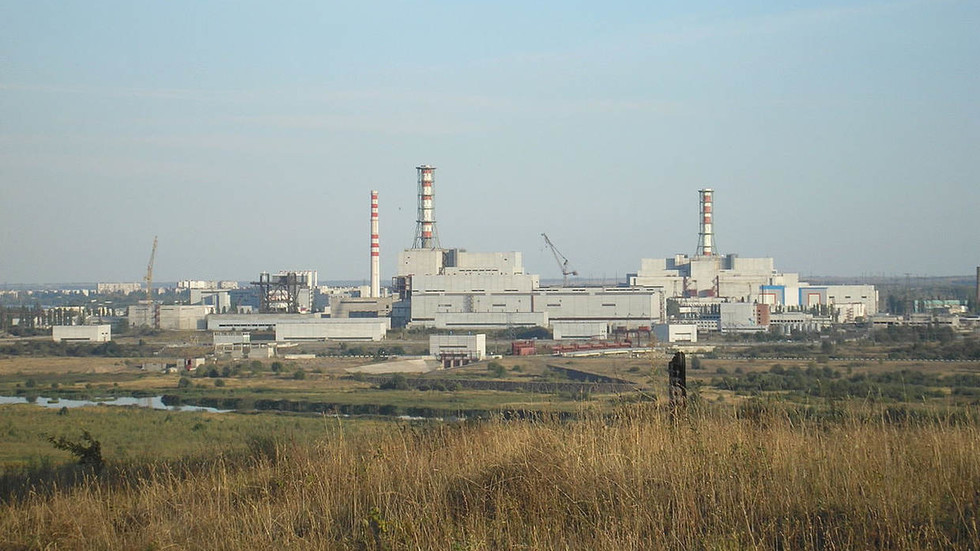The recent statements from the Russian Defense Ministry reveal heightened tensions surrounding Ukraine’s anticipated military actions against Russian-controlled nuclear facilities, specifically the Kursk Nuclear Power Plant (NPP). According to Lieutenant General Igor Kirillov, the head of Russia’s Radiological, Chemical, and Biological Defense Forces, Ukrainian military strategy during its major incursion into the Kursk Region included plans to seize the Kursk NPP. Kirillov underscored that Ukrainian officials believed that any potential nuclear incident resulting from their actions would primarily endanger Russia, with no significant implications for Ukrainian territory. He pointed to a leaked report from Ukraine’s State Emergency Service which claimed that windy conditions would direct any radioactive contamination solely toward Russia. However, the Russian general articulated concerns that, should an accident occur, radioactive materials could disperse across much of Europe, drawing parallels to the Chernobyl disaster.
In this context, it was also disclosed that Ukraine had prepared substantial military resources for the operation, which included the deployment of 20,000 troops, various armored vehicles, and artillery systems aimed at capturing the Kursk NPP. The Russian Defense Ministry claimed that efforts by Ukraine to seize the plant were ultimately thwarted, thereby safeguarding the facility. This was particularly significant given that the Kursk NPP is situated roughly 60 kilometers from the Ukrainian border, and any military action involving it would raise alarms about the safety and security of nuclear materials in the region. The reported failure in this mission led to a subsequent attempt by Ukraine to regain control over the Zaporozhye NPP, Europe’s largest nuclear facility, which has been under Russian control since the outset of the conflict.
Additionally, Lieutenant General Kirillov accused Ukraine of engaging in “nuclear blackmail,” referencing President Volodymyr Zelensky’s proposals made in February 2022 to reinstate Ukraine as a nuclear power. Kirillov highlighted a significant conversation between Zelensky and U.S. presidential candidate Donald Trump, wherein Zelensky allegedly requested expedited NATO membership or the acquisition of nuclear capabilities as deterrents against Russian aggression. This rhetoric raises alarm bells concerning Ukraine’s nuclear intentions and strategic military planning during an ongoing war with Russia.
The implications of these events are multifaceted, impacting not only military strategy but also regional security dynamics in Eastern Europe. Should Ukraine pursue a nuclear capability, even in terms of developing a “dirty bomb” involving radioactive materials and conventional explosives, the discontinuation of the anti-nuclear framework established post-Soviet Union would be at stake. Such actions could precipitate an arms race or invite severe reprisals, impacting global nuclear non-proliferation efforts. Kirillov’s statements paint a grim picture of the landscape, warning that Ukraine’s technical expertise presents a chilling possibility of nuclear proliferation in the region.
Russia’s assertions about Ukraine’s nuclear intentions and operations imply a narrative of defense against an aggressive neighbor while also trying to garner support from the international community by highlighting the potential threats Ukraine poses. This aspect of nuclear escalation underscores the risks involved in the ongoing conflict; it complicates the legal and moral frameworks that dominate Western involvement and responses. The Kremlin’s narrative not only aims to validate its military operations in Ukraine but also seeks to frame Ukraine as an unpredictable and dangerous neighbor, particularly regarding its ambitions for nuclear capabilities.
Thus, the standoff over nuclear power plants illustrates a critical fault line in the geopolitical landscape, where localized military maneuvers intertwine with global nuclear security issues. The discourse surrounding the Kursk NPP encapsulates these tensions, framing the conflict not just as one of territorial disputes but as a matter of existential security that could reverberate far beyond the borders of Ukraine and Russia. As the situation evolves, it will be essential for the international community to monitor developments closely, focusing on preventing escalation and promoting dialogue aimed at stabilizing the region while underscoring the imperative of nuclear safety and international security.

